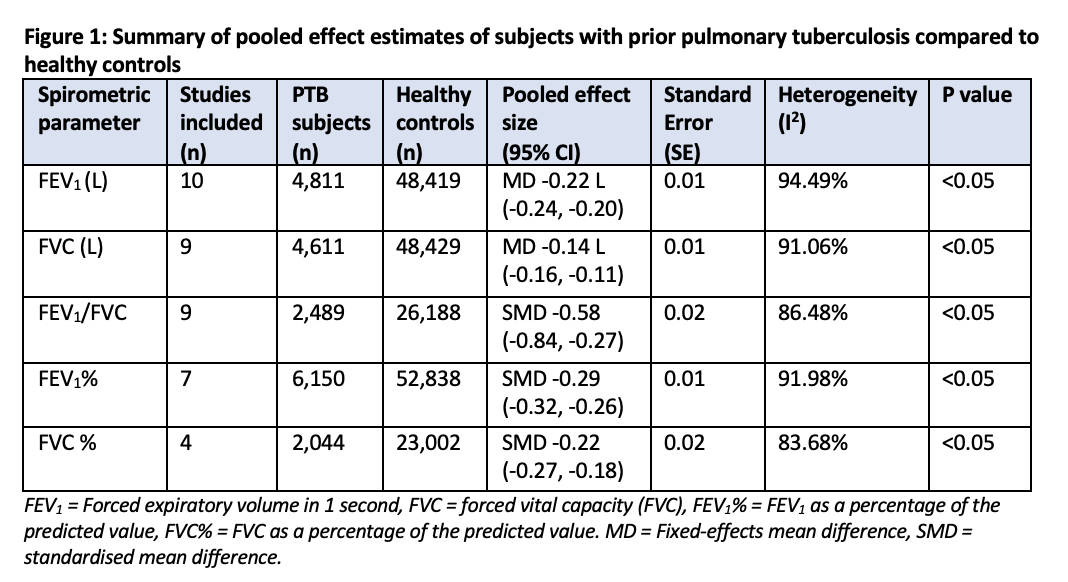Abstract
Introduction Although post-tuberculosis lung disease poses a significant threat to survivors, data showing objective impairment in such individuals is scarce. This systematic review and meta-analysis investigated the extent of proven respiratory impairment following pulmonary tuberculosis (PTB) disease.
Methods We carried out a systematic review registered with PROSPERO and following PRISMA guidelines. We searched Embase, MEDLINE and CINAHL from 1/01/00 - 31/12/21. Any study design with lung function data in subjects with a prior PTB versus healthy controls were included. Outcomes extracted included; forced expiratory volume in 1 second (FEV1), forced vital capacity (FVC), FEV1 as a percentage of the predicted value (FEV1%), FVC as a percentage of the predicted value (FVC%) and FEV1/FVC. Fixed-effects mean difference (MD) and standardised models (SMD) were used for analyses. Between-study heterogeneity was estimated with I².
Findings Of the 3936 publications found, data from 13 studies reporting on 62932 subjects were included for meta-analyses. Compared to healthy controls, prior PTB subjects had lower pooled effect estimates across all spirometric parameters; FEV1 -0.22L, FVC -0.14L, FEV1/FVC -0.58(figure 1).

Conclusion PTB survivors have significantly decreased lung function compared to healthy controls, with FEV1 more affected than FVC, giving a mixed restrictive/obstructive picture with predominantly airflow obstruction.